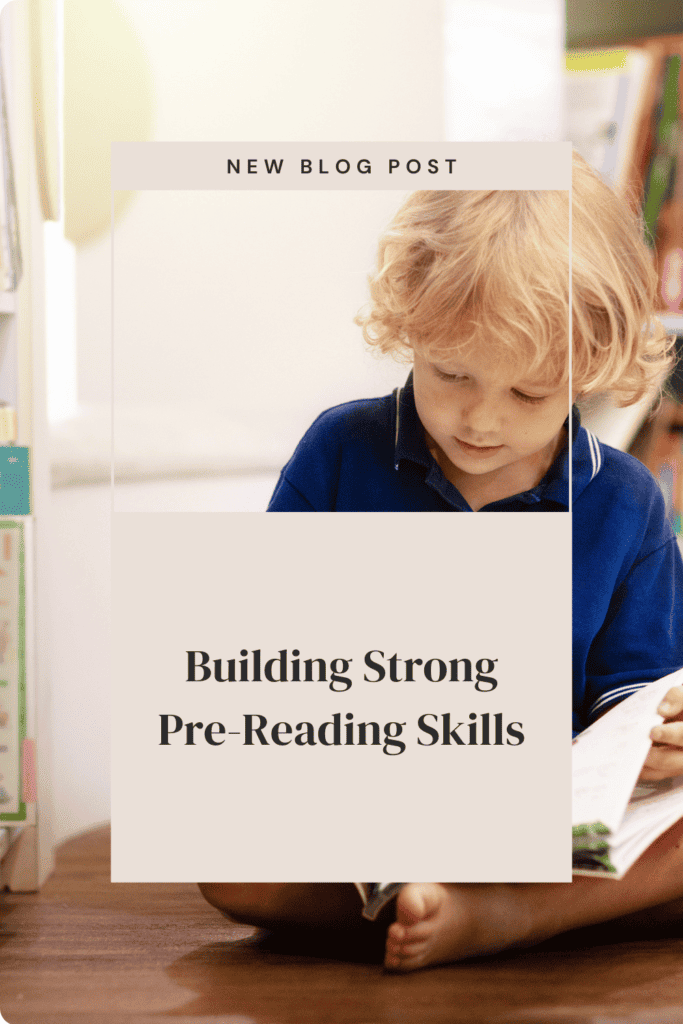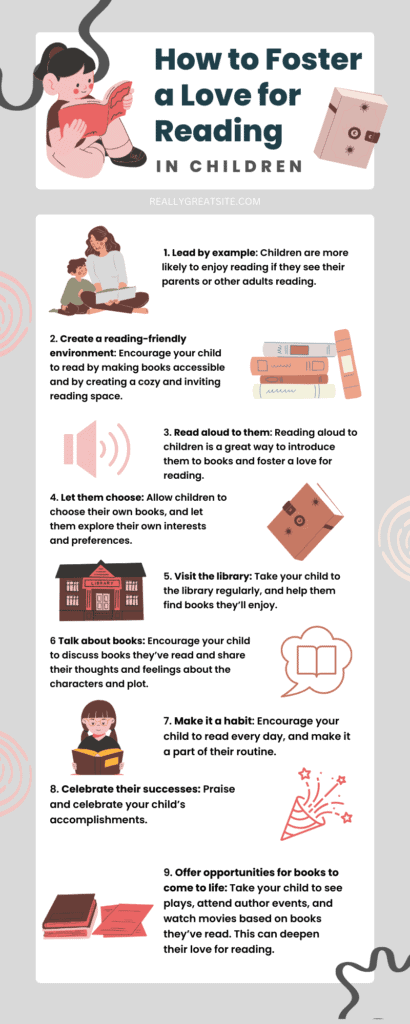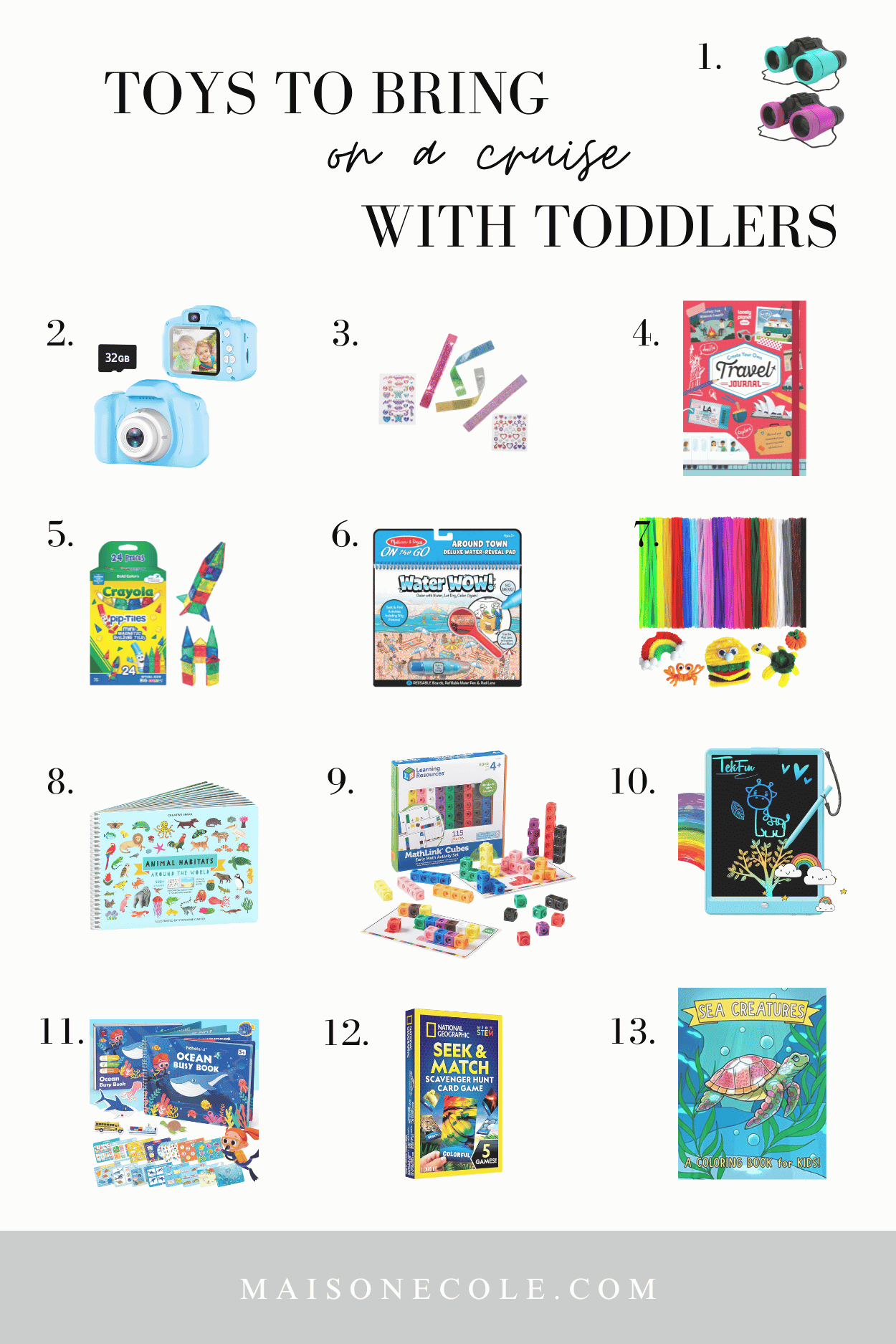Pre-Reading Skills: Empower Your Child’s First Steps in Reading
This post may contain affiliate links, meaning I make a commission if you purchase through my links, at no extra cost to you. Disclosure here
This post is all about guiding moms through the essential pre-reading skills.

Let’s talk about something really important in your child’s learning journey: pre-reading skills. They’re the foundation of your child’s relationship with words and stories.
Pre-reading skills are those early abilities that set the stage for your little one to become a confident reader. They’re about understanding and playing with sounds, recognizing symbols, and starting to see books as fun, exciting friends.
In this article, we’ll cover why these skills matter and how you, as a mom, can play a crucial role in developing them. Whether it’s through storytime, playful activities, or everyday interactions, you have the power to make a huge impact on your child’s reading journey. So, let’s explore these skills together and set your child up for a lifelong love of reading!
1.The Importance of Pre-Reading Skills
Let’s talk about why pre-reading skills are a game-changer for your child. They play a huge role in overall brain development. When your child engages in activities that build pre-reading skills, they’re essentially giving their language skills a boost. They start understanding and using language more effectively, which is a big win.
But it goes beyond language. These skills also sharpen their listening abilities. Think about it: when your child listens to stories or plays sound-based games, they’re not just having fun; they’re tuning their ears to listen more intently. This is a skill that will serve them well, not just in learning to read but in all areas of learning.
And let’s not forget about critical thinking. Yes, even at this young age, pre-reading activities can kickstart their problem-solving skills. They learn to make connections, predict outcomes, and understand sequences. These are big concepts, and pre-reading skills lay the groundwork for them.
So, when you’re playing a rhyming game or exploring a picture book together, remember: you’re doing so much more than just prepping for reading. You’re enhancing their language, listening, and thinking skills, making the whole learning journey smoother and more enjoyable for them.
Brain Development: Between birth and age five, a child’s brain develops more than at any other time in life. Early exposure to reading can strengthen cognitive development.
Foundation for Future Learning: Early literacy lays the groundwork for later academic success. A strong start in reading can lead to better performance in other subjects later on.
2. Pre-Reading Skills in Early Childhood
Understanding how pre-reading skills develop in early childhood can be really insightful for you as a parent or caregiver. It’s a bit like watching a plant grow; there are stages, each building on the last.
In the early years, kids start by learning how to listen and understand sounds. They begin to grasp that words are made up of different sounds, and they start to play with these sounds. It’s the very foundation of language development.
Then, they move on to recognizing symbols, like letters. They start to understand that those squiggly lines in books and on signs actually mean something. This is when the connection between spoken and written language begins to form.
As they grow, they start to recognize print in their environment. It could be the label on their favorite cereal box or the stop sign on the street. They begin to realize that print is a part of their world, and it’s used to communicate messages.
And let’s not forget the role of books. Early on, children learn how to handle books, turn pages, and understand that stories come from those pages. They start to see books as sources of stories, information, and fun.
Now, as a parent or caregiver, your role in nurturing these skills is invaluable. You are the guide in this journey. When you read stories, point out letters and words, or even just talk and listen to your child, you’re supporting their pre-reading skill development. It’s in these everyday interactions and activities that these skills are nurtured. So, by being engaged and proactive, you’re laying the groundwork for your child to become a confident, enthusiastic reader.
Terminology you need to know
Phonemic Awareness: Recognizing and playing with individual sounds in spoken words.
Vocabulary: Building a rich vocabulary even before they can read.
Print Motivation: Developing an interest in and enjoyment of books.
Print Awareness: Noticing print everywhere, understanding how to handle a book, and knowing how to follow words on a page.
3. Preschool Reading Skills: What to Expect
When your child reaches preschool age, it’s an exciting time in their reading journey. There are certain skills and milestones you can expect, but remember, every child develops at their own pace, and that’s perfectly normal.
Typically, preschoolers start to recognize some letters, especially the ones in their own name. They begin to understand that those letters have specific sounds. It’s like unlocking a code, and they start to see these patterns in words around them.
You might also notice your child showing interest in rhyming words. They might enjoy games or songs that play with sounds and rhymes. This is a sign they’re tuning into the sounds in words, which is a key pre-reading skill.
At this stage, they also start to develop a sense of story. They understand the flow of a narrative and might even have favorite stories that they want to hear over and over. This repetition is good; it shows they’re engaging with the structure of stories.
Some preschoolers might even pretend to read, mimicking what they’ve seen adults do. They might hold a book, turn pages, and tell a story based on the pictures. This pretend play is a great sign. It shows they understand what reading is about and are eager to participate in it.
It’s important to remember that there’s a wide range of normal development. Some kids might be quick to recognize letters, while others might be more interested in storytelling. Some might show clear signs of reading readiness, while others might take more time. And that’s okay. As a mom, your role is to support and encourage them at their own pace, providing opportunities for them to explore and learn in a way that’s fun and engaging for them.

4. Pre-Reading Skills Examples
Let’s look at some practical examples of pre-reading skills in action. These are things you might already be doing with your child or can easily incorporate into your daily routine.
- Rhyme Time: Playing with rhyming words is a fun way to boost phonemic awareness. You can make a game out of finding words that sound alike, like “cat” and “hat,” or enjoy rhyming books together.
- Letter Hunt: This is about recognizing letters in the environment. On a walk or during a drive, you can point out letters on signs and talk about the sounds they make. It’s like a mini scavenger hunt that makes learning letters a part of everyday life.
- Storytelling Together: Encourage your child to tell you a story based on pictures in a book. This helps them understand narrative structure and use their imagination to fill in the gaps.
- Sound Games: Play games that focus on the sounds in words. For instance, you can ask, “What sound does your name start with?” or play a game where you break words down into individual sounds.
- Book Handling: Teach your child how to hold a book, turn pages, and point to words as you read. This familiarizes them with how books work and the directionality of print.
These examples are not just learning activities; they’re opportunities for bonding and fun. As you integrate these into your time with your child, you’re helping them develop essential pre-reading skills in a natural, enjoyable way.
5. Pre-Reading Skills Checklist: Your Handy Guide
Here’s a practical checklist to help you track and support your child’s pre-reading skills. As you go through this list, remember that observation is key. Notice how your child interacts with books, words, and sounds in their daily life.
- Sound Awareness:
- Can your child recognize rhyming words?
- Do they enjoy songs and games that involve sounds?
- Interest in Books:
- Does your child show interest in books and stories?
- Do they pick books to look at on their own?
- Understanding of Print:
- Can your child recognize some letters, especially in their name?
- Do they understand that print carries a message?
- Narrative Skills:
- Can your child retell a simple story or event?
- Do they enjoy making up stories based on pictures?
- Vocabulary:
- Is your child curious about new words and their meanings?
- Do they use a variety of words in their speech?
- Book Handling Skills:
- Does your child know how to hold a book correctly?
- Can they turn the pages of a book?
- Letter Recognition:
- Can your child recognize and name some letters?
- Are they starting to understand that letters have sounds?
To support these skills in everyday life, make reading and playing with words a regular part of your routine. Use daily activities as opportunities to talk about sounds and words. Read together regularly and make it fun by using different voices or acting out stories. Encourage questions and curiosity about words and letters. And most importantly, create a positive, stress-free environment around books and reading.
Remember, this checklist isn’t a test but a guide to help you notice and nurture your child’s pre-reading skills in a supportive, loving way. If you’d like a printable version of this checklist, I’ve got you covered! Just click below to download it in PDF format for easy printing and reference.
6. Choosing the Right Books
The universe of children’s books is vast and colorful. How do you pick the perfect stars for your child’s reading galaxy?
- Age-Appropriate: Books should match the child’s developmental stage.
- Interactive Elements: Flaps, textures, and interactive features can engage children more deeply.
- Repetition and Rhyme: Books with repetitive structures or rhymes can be easier for children to predict and remember.
7. Challenges & Solutions – Reading Roadblocks?
Every reading journey has its challenges. Here’s how to navigate the bumps and make the ride smooth and enjoyable:
- Short Attention Span: Keep reading sessions brief. Choose shorter stories or break longer ones into multiple sessions.
- Lack of Interest: Offer a variety of books. Sometimes, non-fiction topics like animals or vehicles might captivate a child’s interest more than traditional stories.
- Frustration: Some children may get frustrated if they find reading challenging. It’s essential to be patient, offer plenty of encouragement, and remember that every child’s pace of learning is different.
You may also like
EASY WINTER CRAFTS FOR PRESCHOOLERS: FUN & CREATIVE IDEAS FOR LITTLE HANDS
25 DAYS OF FUN: WINTER CRAFTS FOR PRESCHOOLERS TO SPARK JOY & LEARNING!
Conclusion
We’ve covered a lot of ground together, from understanding what pre-reading skills are to recognizing their importance in early childhood development. We’ve explored the typical skills and milestones for preschoolers, provided examples of pre-reading activities, and even created a handy checklist to help you along the way.
The key takeaway is this: pre-reading skills are the foundation upon which your child’s reading journey is built. They’re not just about preparing for reading; they’re about nurturing a love for books, enhancing language development, and fostering critical thinking.
As moms, your role is incredibly powerful. You have the ability to create a positive, enriching environment that encourages these skills. By being proactive and engaged, you’re not just helping your child learn to read; you’re setting them up for a lifetime of learning and discovery.
So, embrace this journey with open arms and a playful spirit. Read together, explore words, and celebrate each small step. Remember, every great reader starts with the basics—the pre-reading skills that make all the difference. You’ve got this!








